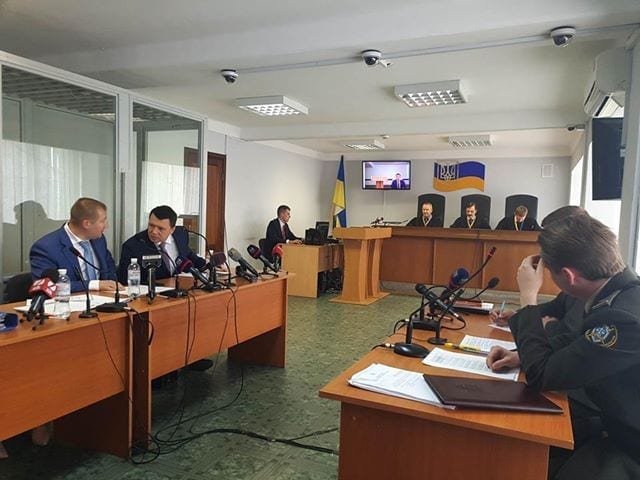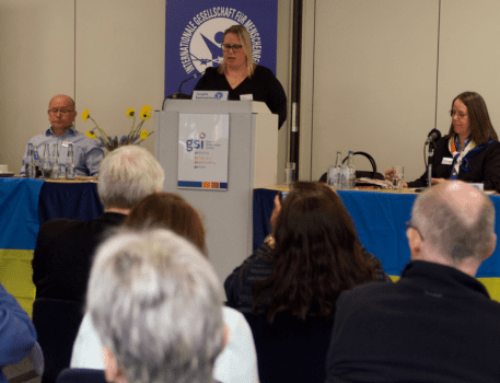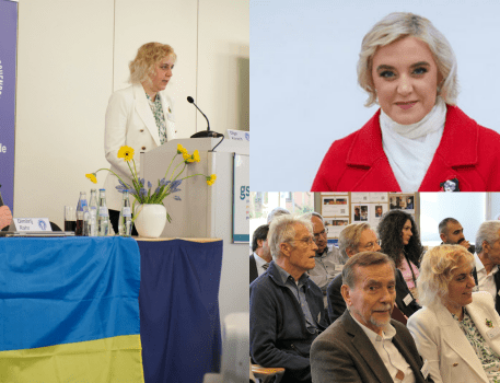Monitoring of the trial of V. Yanukovych (summary of court sessions on 18.04.18 and 19.04.18).

Photo: censor.net.ua
On April 18 and 19, 2018, in the Obolon district court of Kiev court sessions on the case of the ex-president of Ukraine Victor Yanukovych accused of high treason had taken place. During hearings the situation with numerous refusal of the court to interrogate the witnesses of the defense (residing in Russia) according to the rules of international mutual assistance in criminal cases has become aggravated again.
On these sessions, the ex-president’s lawyers repeatedly demanded to interrogate the witnesses which held key state posts in the winter of 2014 and possess the information, necessary for clarification of the facts within the case. As it was already noted in the previous reports, these witnesses have expressed readiness to testify, but with the respect to the international agreements which take effect in case of interrogation of the persons living abroad. The court has rejected such requirements, including the statement of V. Yanukovych in which he mentions existence of criminal liability for violation of the right for protection. “Opposition” on the matter between court and defense goes on for nearly a year, ISHR experts repeatedly pointed to the problems with respect for the right to a fair trial arising in connection with refusal of the court to work within the European convention on the mutual legal assistance on criminal cases ratified by Ukraine. During the hearing on April 19th, the board of judges decided “to resolve the question” with interrogation of witnesses of defense and declared transition to a judicial debate. It means that all witnesses which have not been interrogated won’t have any opportunity to testify in court.
Statements of lawyers that haste transition to debates deprives them of an opportunity to interrogate more than ten witnesses among whom the ex-prime minister Azarov, the ex-Minister of Internal Affairs Zakharchenko and some other high-ranking officials of the period of presidency of V. Yanukovych, were ignored. The board of judges has also disregarded the statement of lawyers that two witnesses are ready to give the evidences directly in the courtroom and for their interrogation it isn’t required to carry out the international agreements from execution of which the court evades. The presiding judge has stated that the court fully understood the facts of the case and starts the debate.
This situation not only violates the principle of equality of arms, but also calls into question a possibility of fair judicial proceedings. According to practice of the European Court of Human Rights if the defendant has made a request to hear witnesses which is not vexatious, and which is sufficiently reasoned, relevant to the subject matter of the accusation and could arguably have strengthened position of the defense or even led to the applicant’s acquittal, the domestic authorities must provide relevant reasons for dismissing such request (cases of “Topic v. Croatia”, “Polyakov v. Russia”). In the case of V. Yanukovych, the court has initially allowed interrogation of the above-mentioned witnesses which demonstrates validity of their interrogation while strong reasons for dismissal of interrogations are absent. The presiding judge only stated that the court has fully understood the facts of the case.
Moreover, in case of absence of the witness (on court sessions), the court has to make all reasonable efforts for ensuring their presence (cases of “Bonev v. Bulgaria”, “Karpenko v. Russia”) and to adequately consider the application of the defendant concerning the matter (case of “Pello v. Estonia”). The refusal of interrogation of the witnesses who are abroad in accordance to the international law despite existence of statements with the requirement of such interrogation from witnesses and the defendant can’t be perceived as “reasonable efforts” or “adequate consideration of the application of the defendant”. The inability to justify refusal of interrogation of the witness can limit the right for protection that is incompatible with guarantees of fair judicial proceedings (cases of “BocosCuesta v. the Netherlands” and “Vidal v. Belgium”).
After the decision of the court to move to a debate, V. Yanukovych’s lawyers have stated that such decision is a crime and have left the court session. In reply the presiding judge has stopped the hearing and stated that “we either will wait for lawyers whom the accused Yanukovych Victor Fedorovich wants to see, or we will resolve an issue with involvement of defenders at the expense of the state”, which confirms the readiness to continue litigation with the assistance of the public defender which will directly contradict with V. Yanukovych’s interests.
Experts of the International Society for Human Rights will continue monitoring of this trial. The following court session is appointed to May 3. It is possible to get acquainted with the previous materials here.
Expert council








Leave A Comment